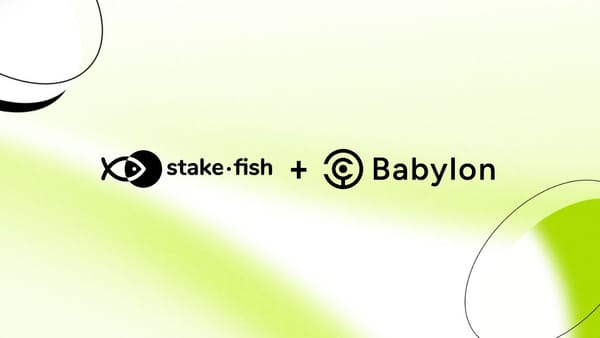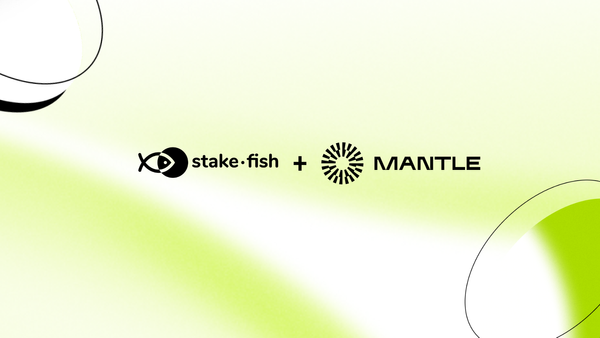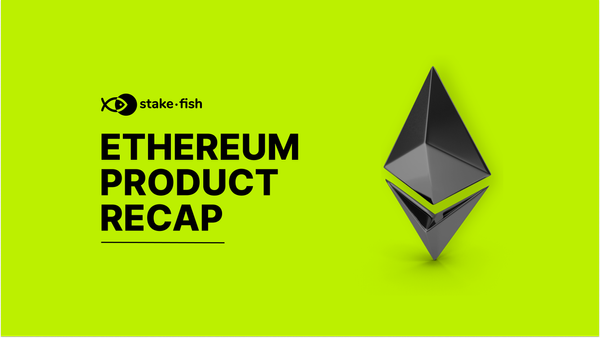[grant.fish grantee Vol. 3] CosmWasm
If you follow the Cosmos ecosystem, you’ve probably heard of CosmWasm, the project aiming to bring cross-chain smart contracting to Cosmos…
![[grant.fish grantee Vol. 3] CosmWasm](/content/images/size/w1200/max/800/1-N6Ipf5xiQ8Av0LXrvOoyOg.png)
If you follow the Cosmos ecosystem, you’ve probably heard of CosmWasm, the project aiming to bring cross-chain smart contracting to Cosmos and one of the two grantees in our latest grant.fish cohort.
We sat down with Ethan Frey, CEO/CTO of Confio, the team behind CosmWasm; Misang Ryu, Head of Sales and Business Development; and core developer Simon Warta to talk about what cross-chain smart contracts will bring to the blockchain world, the history and goals of the CosmWasm team, and more.
We’d also like to wish CosmWasm a happy birthday! The team came together on this day one year ago.
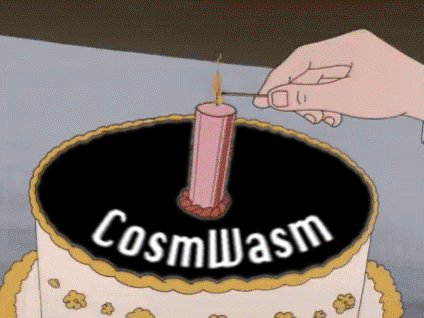
Here’s to many more birthdays to come! 🎂🎉
What brought you to the blockchain space, and what brought you to Cosmos specifically?
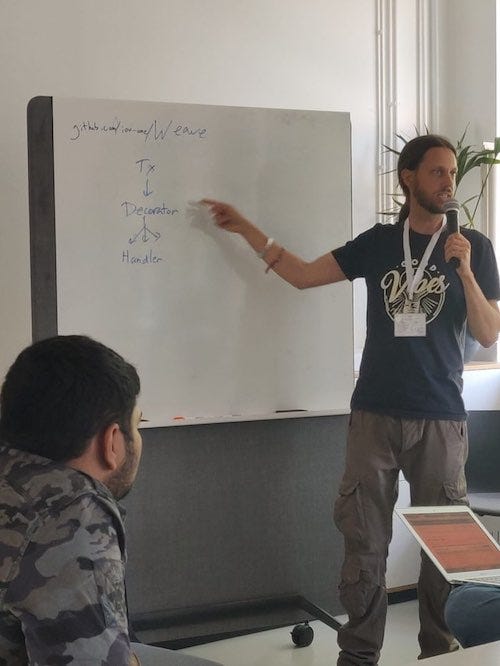
Ethan Frey: In 2014, at a workshop on sociocracy, I met a man who was proposing a radically different governance and economic system and had the feeling that this could only be done in a secure and fair way using blockchain. I spent a while collaborating with him on Koina as a side project, and along the way he introduced me to Ethereum (around ICO time) and then Tendermint. I saw the power of using Go to build custom apps, and I started hacking on Tendermint in 2016, trying to build out a prototype. This got the attention of Ethan Buchmann and Jae Kwon, and they showed me the whole Cosmos vision with IBC and light client proofs. I was hooked and joined All In Bits in January 2017 to work full time on making this a reality. I have changed companies but remain as committed to the vision of Cosmos and IBC as ever.
I would love to realize a larger project on Cosmos that truly offers a different governance and financial system we could opt-in to.
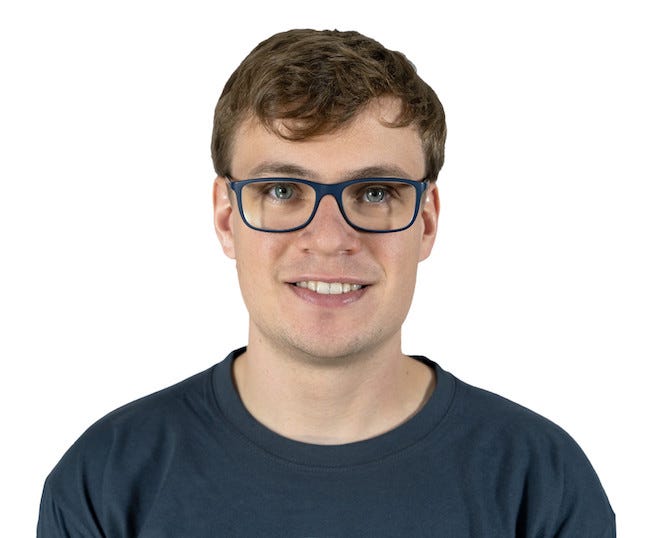
Simon Warta: When a startup job as a mobile developer finished in early 2018, I found multiple job opportunities in the blockchain space. Until then I ignored Bitcoin, as I didn’t believe in the sustainability of Proof of Work. Getting curious, I started looking into Proof of Work alternatives and spent many months as a free contributor in the Lisk ecosystem. I wanted to understand every single bit of one blockchain instead of getting into different projects simultaneously. I contributed some patches, created a tool to verify the chain history, fixed a bug that halted the chain, and discovered a critical security issue. Brainstorming about network security, I got to know Isabella, one of the co-founders of IOV, who then offered me a job at IOV. This brought me to Tendermint-based blockchains, and my then-colleague Ethan brought me into Cosmos.
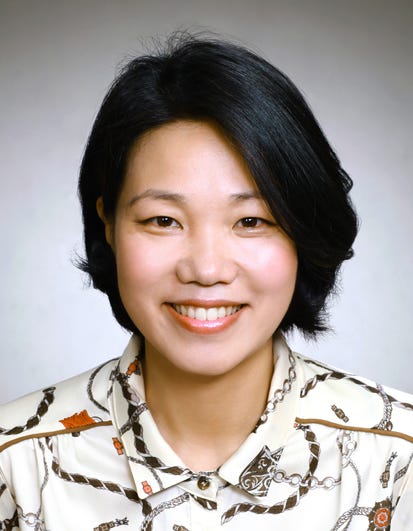
Misang Ryu: I’m in charge of marketing and business development at CosmWasm. I’m from South Korea but have been living in Europe for 12 years: 6 in France, 6 in Spain. I have always liked to meet people from different cultures and learn new languages, so I went to China and Japan to study, then I ended up here in Europe, so now I can speak three Asian and three European languages.
I was dragged into this blockchain space thanks to my husband, Alexandre. After we moved to Madrid in 2014, he started to read books on Bitcoin. At first I thought he was in some kind of sect!
Then he got me to read the books of Andreas Antonopoulos. I felt, “Wow, this is so cool!”
Then I got more into this blockchain world, which led to my first career as marketing manager at IOV, a blockchain startup, in 2018. I met Ethan and Simon there, and I was able to meet many people around the Cosmos ecosystem during work and participating in events such as BUIDL, HackAtom, and Devcon in 2018 and 2019. I guess my curiosity and passion to learn new things, languages, and social skills paved the way for who I am now.
How did CosmWasm start? How did the team come together?
Ethan: I met Aaron (from Regen) at Hackatom Berlin and decided to work on some demo to support Regen. A few others joined, and we kept throwing out project ideas. Shortly before midnight on Friday, after a few beers, someone suggested we could build a Wasm smart contract engine for Cosmos, and everyone loved it. A few rounds of discussion later and after seeing that many of the building blocks existed, we plunged in head-first the next morning.
After 2 days of coding and little sleep, we were able to deploy some contracts to our testnet, execute them, and even visualize them in a simple explorer.
It was the most interesting new topic I had worked on since writing the IBC whitepaper, and I wanted to make this real. There were so many cut corners in the prototype (like no gas metering, etc.) that would never be fit for production, so I requested support from the ICF to get this to a proper working version without any security holes. I started working on this part-time in September 2019, and from January 2020, Simon and I have been on this full-time.
Simon: I enjoy working with Ethan, and this stuff keeps me busy and creative.
Can you give us an outline of the CosmWasm project and what you hope to achieve with it?
Ethan: My goal since I joined the Tendermint team in early 2017 was to reduce the difficulty of secure blockchain programming to within a few multiples of web programming. This was being done by Ethereum with Solidity, which was easy to write, but even easier to write bugs. And I wanted to make it easy to build and test complex systems on the blockchain. I spent a year and a half at IOV (much with Simon) working on easier frontend interfaces to Tendermint, and with CosmWasm we have an easy way to upload code to a running blockchain and deploy a dapp for it. I would like to make this easier to use, while maintaining security and testability. We have a powerful contract system in Rust now, and I love it, but many people find Rust a bit intimidating. We are looking at supporting contracts written in both TinyGo and AssemblyScript to lower the bar for writing contracts. We are looking at CosmJS and a full suite of tools to build frontend apps on top of. In short, we want to take all the power of Cosmos and make it user- and developer-friendly. And by that open up a universe of possibilities.
What new kinds of projects do you envision will be enabled by the development of cross-chain smart contracts?
Ethan: One area I would really like to work on is having a complex set of governance contracts (DAOs++) on one chain controlling assets on others. This could be a money market fund staking or trading on DEXes on remote chains (as everyone looks at DeFi), but I would be more excited to see p2p crowdfunding and responsible use of tokens in a fully transparent project, a project that could be built using parts from many different custom chains.
I also think “rented security” and many IBC networking/sharding models could be implemented via smart contracts, allowing us to quickly iterate and explore the power of cross-chain composition.
Blockchains are like the internet in the early 90s before hyperlinks started connecting chains, then later REST APIs allowed apps to quickly pull in three or four different backend services into one app. No one could see exactly where that would lead, and I think we are in a similar spot now for blockchain.
Once we have IBC with powerful scripting on top of it, a whole new world of possibilities will open up.
Simon: One additional aspect of this is the reduction of the vendor lock-in. You can create a smart contract for one chain and at some point decide to move all your programs to a different chain. As a developer, you can build up the competence to create smart contracts for many different chains by learning one framework.
What does it mean for your team to receive the grant? What are your plans for it?
Misang: First of all, we are very grateful to stakefish for awarding us this grant. I believe CosmWasm is a great project, a game-changer in the Cosmos ecosystem, thanks to brilliant developers like Ethan and Simon, and it would be very regretful if we could not keep going due to financial problems. On top of the ICF grant we’ve received, stakefish’s support is a plus for us to be useful for many projects and keep going until we stand on our own feet. Most likely, we will use this grant for dev evangelist activities to nurture a solid foundation of developers who can build interesting things with CosmWasm.
Ethan: Thank you for this grant. Until February or March, I was writing quite a few articles and tutorials myself, but with the search for funding, working to release 0.8, onboarding new devs, doing outreach, etc., I have had little time for this. I am happy to be doing a workshop on June 29, but even more excited to have someone help out with this, which lets me focus on the company direction, while someone else provides the community with good information and training.
What other projects in the Cosmos ecosystem are you excited about?
Ethan: Chainapsis [the other grant.fish grantee]is a very cool project, with both the Keplr extension and the new ICS27 “interchain accounts.” I like Althea and Regen for their connections to real-world problems, making blockchains useful outside of crypto natives and investors. There are also quite a few pieces that could form a powerful DeFi ecosystem when connected: Terra, e-Money, KiraEx, Kava… I’m curious to see how they all fit together once IBC is enabled on the Cosmos Hub.
Simon: I am a big fan of Althea because they use blockchain technology as a tool to serve non-blockchain users. It is refreshing to see a project that is not about finance.
Misang: Looking at Terra expanding collaboration areas with more and more major Korean industry leaders excites me a lot. Especially as a Korean living in Europe, tech-innovative things are expected to happen quite slower than in Asia. I’m also looking forward to seeing the outcome of IRISnet’s recent DeFi project partnership with OKChain and how Desmos, the decentralized social network project, will actually turn out, given the current social and political situation worldwide.
Do you currently have open applications on your team?
Ethan: Yes, indeed, thanks to this grant we have an open position for a dev evangelist. Thanks to the ICF grant and the Cosmos Hub proposal, we just hired up and are now four developers, but we are also on the lookout for a good Rust developer (to write contracts) and a solid frontend developer (to build dapps).
Is there anything else you’d like to add?
Misang: People building something useful and meaningful with CosmWasm would mean a lot to us. We would love to see interesting use cases of CosmWasm and are happy to help make it come true, so if you are considering integrating CosmWasm into your project, please reach out to us via our Telegram or Twitter!
Ethan: Well said, Misang. I love to see people using blockchain to make real-world change. And we’re happy to support anyone who wants to build on CosmWasm. Please don’t hesitate to reach out to us.
Website: https://stake.fish
Telegram: https://t.me/stakefish
Twitter: https://twitter.com/stakefish
Instagram: https://www.instagram.com/stakedotfish
LinkedIn: https://b.fish/linkedin


